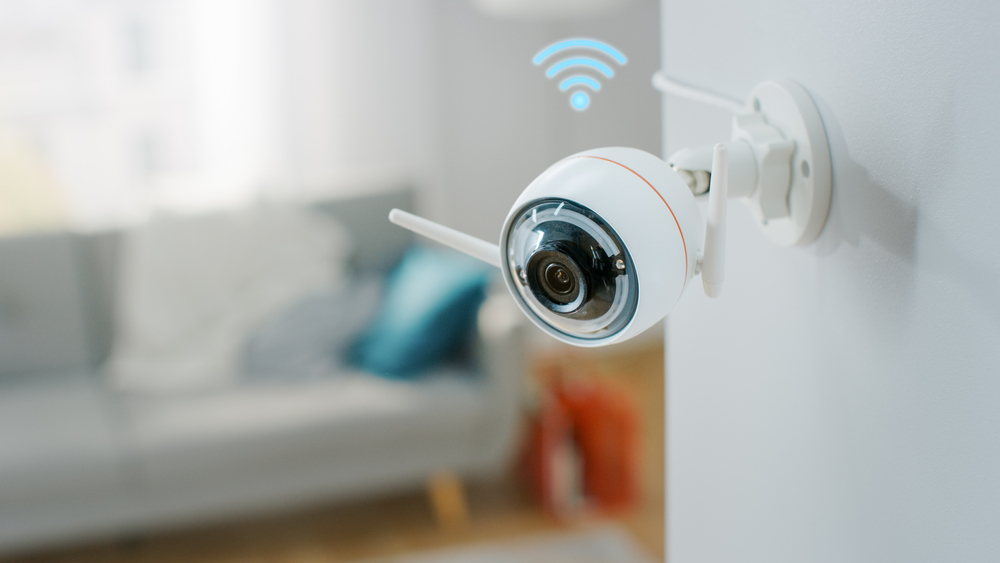
What Does 24-Hour Security Mean?
March 24, 2023 9:40 pm Leave your thoughtsThe term “24-hour security” can mean a lot of different things. For some people, 24-hour security means a building or event is monitored around the clock via security cameras. For other people, however, 24-hour security means having a live person or group of trained professionals, such as a team of personal bodyguards, always available. Of course, there are plenty of options in between these two, such as using a combination of cameras and so-called “live” security.
This means a client looking for 24-hour security needs to understand the differences between cameras, security guards, and bodyguards. Each option has unique advantages and disadvantages; making the right choice will depend greatly on your individual needs.
Camera Surveillance
One of the most cost-effective security measures for a company or residence is always-on security cameras and motion sensor systems. There is a wide range in the quality of these systems. On the low end, surveillance systems can be purchased from major big box stores, self-installed, and a phone app can be used to monitor the system.
These systems are rarely suitable for much beyond monitoring a small home. Many people tend to greatly overestimate their ability to self-monitor, and many of the newer systems on the market have issues with internet connectivity. Furthermore, having the system installed by anyone other than a professional security company means the cameras are prone to many blind spots.
A professionally installed surveillance system is the bare minimum security recommended for commercial clients. A security professional can come out to a property and install a set of cameras and motion sensors to minimize the number of blind spots and surveillance gaps.
These monitoring systems are ideal for small businesses looking to prevent petty crimes such as theft or vandalism. In many cases, the systems are used by employers to protect both themselves and employees; a 24-hour surveillance system in a factory, for example, could be used to look for and document safety and health violations.
Around-the-clock video monitoring will do very little to prevent serious crimes. While a record may be made of the crime that will aid police in finding the culprits at a later date, this type of security will not do anything to actually prevent serious events such as terrorist attacks, and it will do virtually nothing to prevent or subdue a violent mob or riot.
Security Guards
When people think of security guards, they can envision anything from a person trained to deter petty theft and vandalism to a unit of highly skilled guards ready to defend a building or event against threats such as a terrorist attack.
An unarmed, uniformed security guard with minimal experience is the least expensive option. These guards are typically deployed in shopping centers and are mostly a deterrent to petty theft and vandalism. They do not carry firearms and are typically not trained in techniques such as hand-to-hand combat. They patrol areas where minor crimes typically occur to deter people from shoplifting.
Because they are not well trained, these types of security guards are typically prohibited by insurance from actually stopping a crime. If they fail at deterrence, they usually call local law enforcement to deal with any issues.
Because of this, companies needing more security, specifically the ability to deter and defend a person or property, will employ off-duty police officers to provide protection. These security guards can perform arrests, are usually armed, and are more highly trained. For example, it’s common for guards at this level to have training in using physical force, handgun use, and even de-escalation techniques.
Off-duty police officers are ideal for crowd control and buildings and events where rioting or gang violence might be an issue. They can do everything that low-level security officers can do. Still, they can also plan and coordinate with other security personnel, making them an excellent addition to any large security plan.
At the highest end of this range are Executive Protection Services. EPS trains agents to respond appropriately to a wide range of security threats. EPS agents can plan security for large events and venues and coordinate with agents at all levels of training to enact those plans. They are ideal for large venues and events that face a lot of publicity, especially those considered controversial or that have had threats against their assets.
Bodyguards
Bodyguards are a different type of security personnel. While it is not uncommon for bodyguards and security guards to work together in a variety of situations, they each have a unique role.
Rather than secure or defend an event or building, the job of a bodyguard is to protect an individual or group of individuals. These individuals are trained professionals who typically have a police, military, or martial arts background. They are required to put their lives on the line for their clients.
Bodyguards must work in teams to provide 24-hour security. Because of this, this type of protection is one of the most expensive types of 24-hour security. However, bodyguards are often the best solution for people with high-profile status. They can analyze a wide range of security threats and develop appropriate responses to them.
Remember that you will need to contact us for an exact quote for the type of security that matches your circumstances and needs.
Categorised in: 24-Hour Security, Security
This post was written by ADP Security
